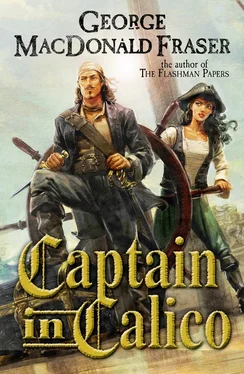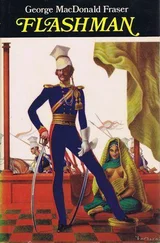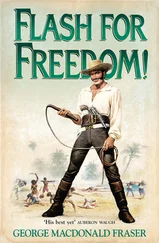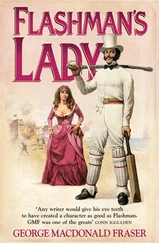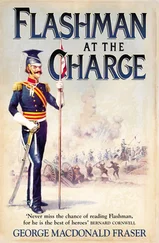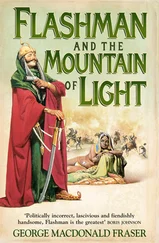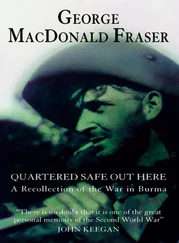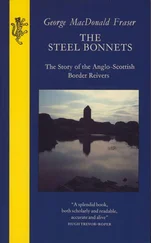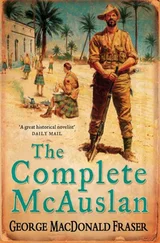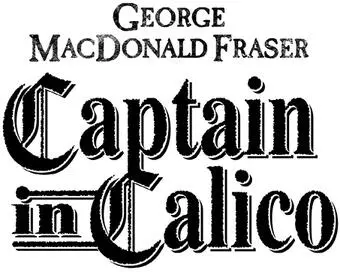

HarperCollins Publishers
1 London Bridge Street
London SE1 9GF
www.harpercollins.co.uk
First published by HarperCollins Publishers 2015
Copyright © The Estate of George MacDonald Fraser 2015
Foreword © The Estate of George MacDonald Fraser 2015
Map © Nicolette Caven 2015
Cover layout design © HarperCollins Publishers Ltd 2016
Cover illustration © Sam Hadley
George MacDonald Fraser asserts the moral right to be identified as the author of this work
A catalogue record for this book is available from the British Library
This novel is entirely a work of fiction. The names, characters and incidents portrayed in it are the work of the author’s imagination. Any resemblance to actual persons, living or dead, events or localities is entirely coincidental.
All rights reserved under International and Pan-American Copyright Conventions. By payment of the required fees, you have been granted the non-exclusive, non-transferable right to access and read the text of this e-book on-screen. No part of this text may be reproduced, transmitted, down-loaded, decompiled, reverse engineered, or stored in or introduced into any information storage and retrieval system, in any form or by any means, whether electronic or mechanical, now known or hereinafter invented, without the express written permission of HarperCollins e-books
Ebook Edition © September 2015 ISBN: 9780008105587
Source ISBN: 9780008105570
Version 2016-05-19
Table of Contents
Cover
Title Page
Copyright
A Foreword to Captain in Calico
Map
1. The Man From the Sea
2. The Stratagem
3. Sea Trap
4. Major Penner
5. Swords Behind The Tavern
6. Anne Bonney
7. The Amorous Invalid
8. Captain Harkness Converses
9. The Plotters
10. The Snare
11. The Quarry
12. Under the Black
13. The Action
14. Mosquito Bank
15. On the Account
16. The King’s Colours
17. The King’s Justice
18. Kate Sampson
19. The Price of Piracy
20. The Passage
Letters From The Archive
The Flashman Papers (in Chronological Order)
The Flashman Papers (in Order of Publication)
About the Author
Also by George MacDonald Fraser
About the Publisher
A Foreword to Captain in Calico
The stories we loved best as children were the ones our father used to tell us on Saturday nights, when we would snuggle together under the bedcovers and wait for him to pick up from whatever cliffhanger he’d left us on the week before. The room would be lit only by the glow of a small electric fire, and when the story began, it was like falling into another world. Our father had a warm, dark voice, perfect for storytelling, and invariably the story would be about pirates. He had a special fondness for those outlaws of the sea; their flawed, restless characters captured his imagination more than honourable heroes ever could. It was a lifelong love, and so it was hardly surprising that his first attempt at full-length fiction, Captain in Calico , should be a pirate story.
He evidently laboured at it and reworked it over a number of years, presumably in any spare time he had from working long hours as a journalist and bringing up a young family. The book is full of the influences of the writers he had loved as a boy – Sabatini, Wren, Henty, Sir Walter Scott – and the story itself is an old-fashioned yarn of the type he told us as children, but with added sex and violence. The story is based quite closely on real events in the lives of ‘Calico’ Jack Rackham and Anne Bonney, who were both notorious eighteenth-century pirates (and lovers), reflecting our father’s belief that the most compelling stories are those of real events happening to real people. Despite the failure of Captain in Calico to find a publisher, his faith in the method of using fiction to bring history to life was borne out by the later success of the Flashman novels, in which he embroidered real historical events with the exploits of his fictional anti-hero. It is interesting to see him trying his hand at a prototype anti-hero in the character of Jack Rackham, and he evidently worked hard to make him a sympathetic rogue with heroic appeal. But it was only when he came to write Flashman that he hit upon the perfect device, creating an out-and-out cad who triumphs heroically through a mixture of luck and charm, and in spite of his own cowardice and deceit.
Captain in Calico was rejected by publishers, and in time he came to regard these rejections as justifiable – in the margin of an early typed account of its rejection he has written, apparently years later, the word ‘deservedly’ – but we believe he retained affection for the story, and the spark of his early and earnest faith in its merits never quite died. We say this because we believe he would have destroyed it otherwise, not left it in a fireproof safe in his old study for us to find after his death. Of course, eventually he hit upon the inspiration of bringing his beloved pirates to life in a quite different way, when he wrote The Pyrates – a book of comic genius, and one to which the movie Pirates of the Caribbean may owe more than a small debt.
An early reader’s report on the manuscript and letters from The Authors’ Alliance, which are reprinted here, are direct in their criticisms of the work, seeing it as over-long and derivative. But whatever the novel’s flaws, there is no denying that the style is polished, the characters are deftly drawn, and the writing is vivid and powerful.
A book such as Captain in Calico would probably be even less likely to find a publisher today than sixty years ago – not because it isn’t excellently written, but because ripping yarns are hardly fashionable now – and we do not want readers to be deceived into thinking it is vintage George MacDonald Fraser, and of the standard of the Flashman novels or the McAuslan short stories. Indeed, we thought long and hard before allowing it to be published, and are only doing so because we believe that, as an early work, Captain in Calico is a delightful curiosity, one which we hope will provide fans of GMF with a fascinating insight into the inspirations and creative impulses that turned him into such a fine novelist. That he was always a great storyteller was never in doubt. We knew that as children, long ago.
Sie, Caro and Nick Fraser
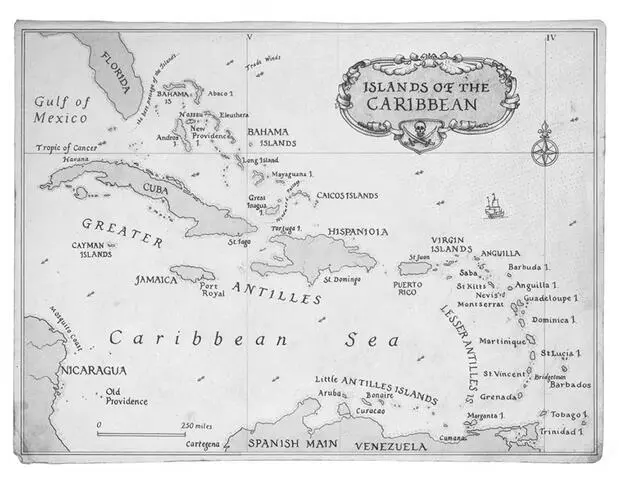
Surveying the distant strand of silver beach washed by the blue Caribbean rollers, Master Tobias Dickey made a mental remark that the view was prodigious fine and life was very good to live. His contentment was born out of a good supper eaten after a hard day’s work, and also out of that sense of wellbeing which had possessed him ever since the day on which he had first set foot in this beautiful New Providence of the Bahamas.
He stood at his window in Governor’s House, a small, portly man well advanced into middle age, pulling at his pipe of Gibraltar tobacco and comparing its fragrance with that of the bougainvillea with which the garden abounded. Life and the evening were quiet, and Master Dickey never dreamed that he was waiting on the threshold of a high adventure in which he was to be called to play a not unimportant part.
Читать дальше
